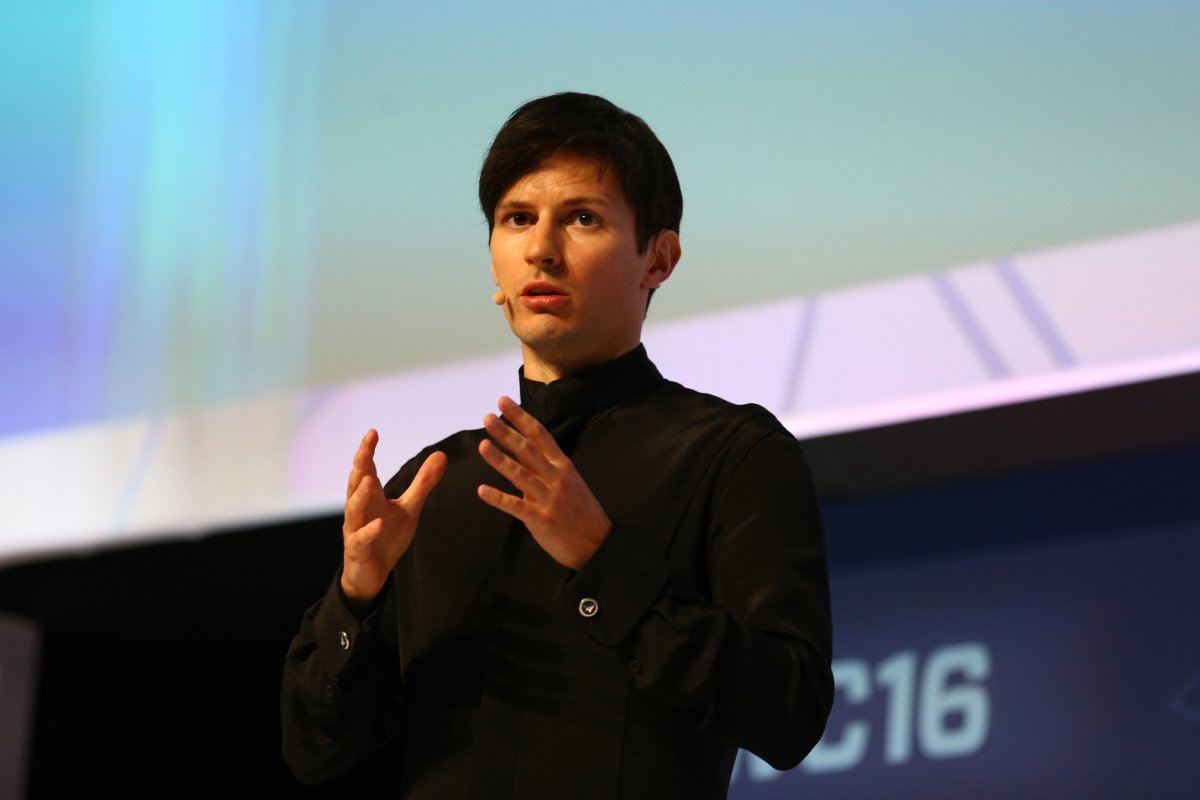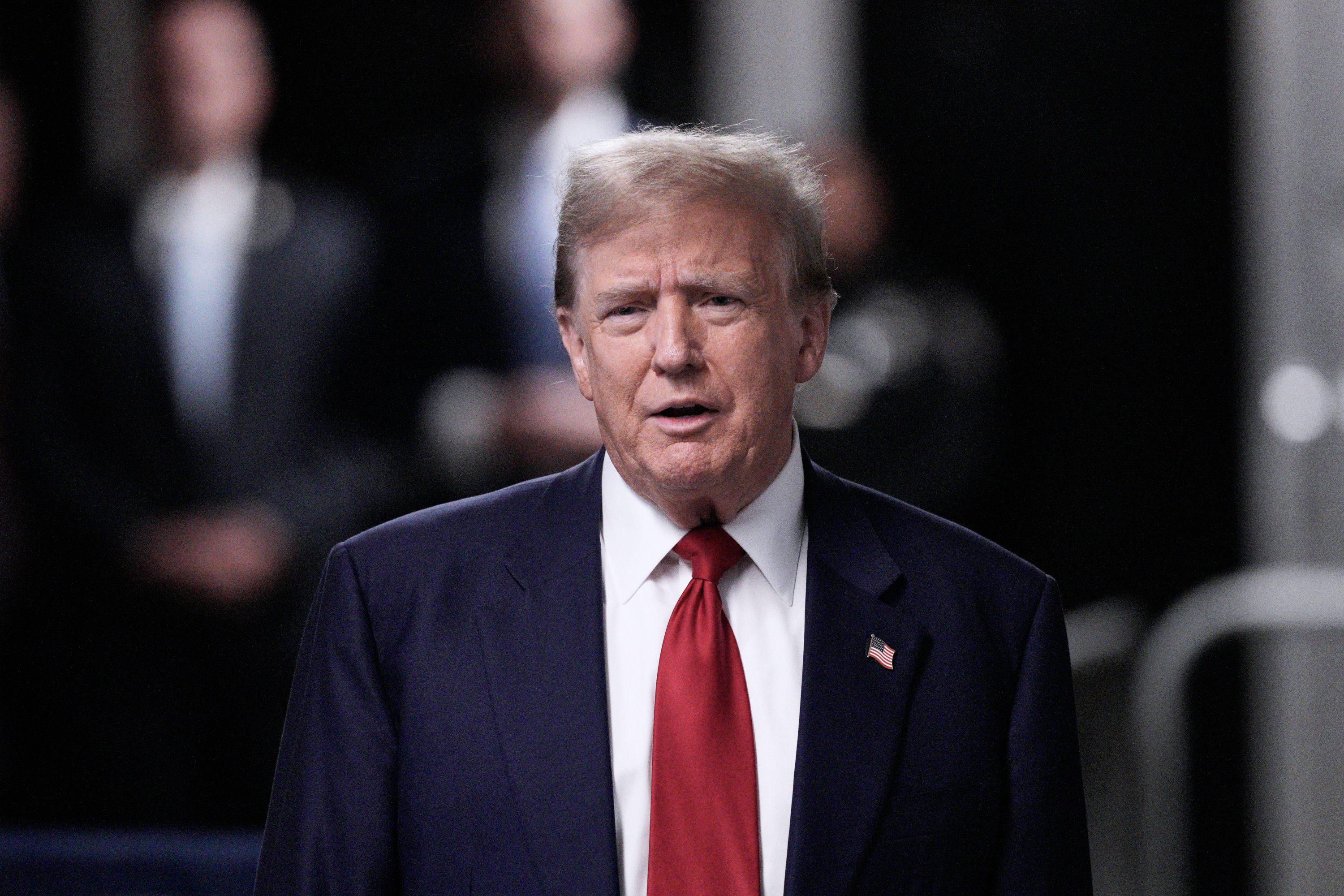The United States government wanted a so-called "backdoor" in to Telegram to potentially spy on its users, according to the messaging app's founder.
Pavel Durov, who launched Telegram in 2013 and currently serves as its CEO, made the claim during an interview with Tucker Carlson that aired on Tuesday night.
Russian-born Durov first rose to prominence as a co-founder of VKontakte (VK), which is frequently referred to as the Russian alternative to Facebook. He recounted to Carlson that he resigned from VK and fled Russia due to the Kremlin pressuring him to share Ukrainian pro-democracy protesters' personal data in 2013.
Durov denied the existence of any ties between Telegram, which is popular in Russia and used by many pro-Kremlin military bloggers, and Russian President Vladimir Putin's government. But he also claimed to having felt "pressured" by the U.S. government in the past.
"We get too much attention from, you know, the FBI, the security agencies, whenever we came to the U.S.," Durov told Carlson before alleging the U.S. government attempted to lure a Telegram engineer into teaching them how to potentially spy on users.

Newsweek reached out to the F.B.I. and the U.S. Department of Defense via email on Wednesday for comment. Telegram's press service was also contacted via a message on the app.
Durov said that the last time he was in America, he brought "an engineer that is working for Telegram, and there was an attempt to secretly hire my engineer behind my back by cyber security officers or agents..."
Carlson asked Durov to clarify if the U.S. government attempted to hire his engineer, to which Durov responded, "That's my understanding."
"To write code for them or to break into Telegram?" Carlson asked.
"They were curious to learn which open source libraries are integrated to the Telegram app. You know, on the client side," Durov said. "And they were trying to persuade him to use certain open source tools that he would then integrate into the Telegram code that, in my understanding, would serve as backdoors."
"Backdoor" is a term for a method used to bypass authorization in order to access protected data.
Ep. 94 The social media app Telegram has over 900 million users around the world. Its founder Pavel Durov sat down with us at his offices in Dubai for his first on-camera interview in almost a decade. pic.twitter.com/NEb3KzWOg8
— Tucker Carlson (@TuckerCarlson) April 16, 2024
Carlson then pressed Durov on whether a backdoor on the messaging app "would allow the U.S. government to spy on people who use Telegram."
"The U.S. government, or maybe any other government, because a backdoor is a backdoor regardless of who is using it. That's right," he said.
The American journalist then called Durov's accusation "a little surprising to hear" and "offensive." "You're confident that happened?" Carlson asked.
"Yes. There is no reason for my engineer to make up the stories," Durov replied.
The CEO said he also believes his engineer because he himself has "personally experienced similar pressure in the U.S whenever I would go to the U.S."
"I would have two FBI agents greeting me at the airport, asking questions," Durov said. "One time, I was having my breakfast at 9 a.m., and the FBI showed up at my house that I was renting. And that was quite surprising. And I thought, you know, we're getting too much attention here."
Carlson asked if the agents visited Durov because they believed he may have committed a crime.
"No. They were interested to learn more about Telegram. They knew I left Russia. They knew what we were doing, but they wanted details. And my understanding is that they wanted to establish a relationship," he said.
Durov continued: "I understand they were doing their job. It's just that for us, running a privacy-focused social media platform, that probably wasn't the best environment to be in. We want to be focused on what we do, not on the government relations of that sort."
The tech boss then claimed he received letters from two members of Congress following the January 6, 2021, riots on the U.S. Capitol. He said one letter came from a Democrat, who requested data from Telegram users who allegedly took part in the riots. The other letter, according to Durov, came from a Republican who said not to give out any data related to the uprising.
Both letters warned Durov he would be in violation of the U.S. Constitution if he did not comply with their requests, he said. Durov told Carlson that Telegram's response was to "ignore them, because it's such a complicated matter related to internal politics in the U.S."
Uncommon Knowledge
Newsweek is committed to challenging conventional wisdom and finding connections in the search for common ground.
Newsweek is committed to challenging conventional wisdom and finding connections in the search for common ground.
About the writer
Jon Jackson is an Associate Editor at Newsweek based in New York. His focus is on reporting on the Ukraine ... Read more
To read how Newsweek uses AI as a newsroom tool, Click here.








